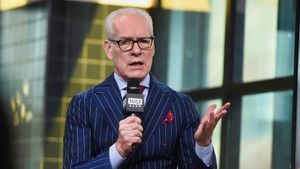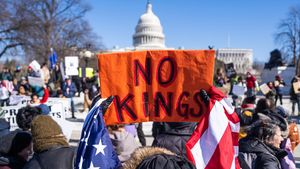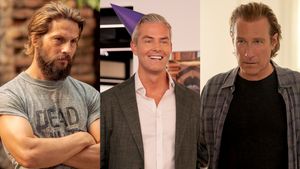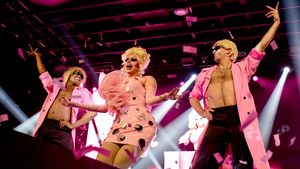It's an old story with social justice movements. They're often started by radicals who are quickly pushed off center stage by self-styled "moderates." In the 19th century, the radical movement for the abolition of slavery gave way to a Free Soil Party that merely called for an end to slavery's further expansion. Similarly, the inclusive Knights of Labor mutated into the American Federation of Labor, which catered only to skilled workers and denied admission to people of color.
Thus has it been with the gay movement as well. After the 1969 Stonewall riots, the radical Gay Liberation Front immediately sprang into life. It offered a passionate, far-ranging critique of long-established values and institutions -- of the nuclear family as a breeding ground for male patriarchy, of binary notions of "maleness" and "femaleness," and of the endemic racism and economic inequality that characterized our institutional structures.
GLF's influence was large, but its life short. It rapidly gave way to national LGBTQ organizations like the National Gay Task Force (later National LGBT Task Force), Lambda Legal (originally Lambda Legal Defense and Education Fund), and the Human Rights Campaign, which together shifted the gay movement from left to center. The new agenda focused on breaking down legal barriers to equality, with special emphasis in the past two decades on winning access to marriage and the military.
It's an agenda that dropped GLF's criticism of the country's structural inequities and accepted "heteronormative" conventions that idealized "coupledom," tightly linked "legitimate" sex to love and intimacy, and confirmed marriage and monogamy as the optimal forms of human connectedness.
This "we're just folks" ideology pushed GLF's radical views to the margins. Since then those views have occasionally resurfaced -- as they did with ACT UP, Lesbian Avengers, Queer Nation, and Sex Panic! from the late 1980s to the mid-1990s. Today the liberationist critique has considerable influence among cultural activists and university intellectuals, but it hasn't regained its earlier strength as an organized political movement -- not the least because the LGBTQ majority has apparently been content with a politics that focuses on ending harassment and pushing for mainstream acceptance.
That has recently begun to change. A new generation of radical LGBTQ activists has risen that is scornful of the gay establishment. Mostly local and regional, the new movement has an agenda reminiscent of GLF's: It denounces the country's persistent racism and poverty, and offers a sharp critique of traditional sexual and gender norms.
The new organizations include SONG (Southerners on New Ground), FIERCE, the Audre Lorde Project, Esperanza (first established in 1987), SisterSong, and the National Queer Asian Pacific Islander Alliance. They've collectively reappropriated the word "queer," defined social justice not as the right to join the military or settle into a relationship of lifetime monogamy but rather -- as Texas State University assistant professor Rose Pulliam has put it, "having the freedom without penalty to express who we are and to ultimately be ourselves."
This does not involve dreams of the white -- the very white -- picket fence and the whole panoply of mainstream values. These groups aren't interested in pledging allegiance to an increasingly corporate society, which they view as blindly racist, consumer-oriented, profoundly conformist -- and markedly devoid of compassion for its have-nots.
The new multi-issue organizations stress coalition work and pay close attention to the interlocking sources of discrimination that derive not just from one's sexual orientation but from one's class, race, and gender as well. Their primary focus is not to gain access to established institutions but to substantially change them. And that includes traditional marriage, which they see as conveying special status and reward to "properly" coupled partners and in the process relegating the vast number of single people to a second-class, second-rate status.
The radical young don't want to jettison or turn back the clock on recent increases in gay access to resources and recognition that have resulted from the mainstream gay movement's efforts. But they do want to move beyond the goal of mere "acceptance." They want a country with a genuine safety net for all its citizens, and they want a gay movement no longer indifferent to the drone strikes and the horrific collateral damage endemic to our "limited" wars.
They believe that the gay agenda of the past two decades -- marriage and the military -- has spoken primarily to a middle-class white constituency and all but ignored the gay world's black, Asian, and Latinx members and the plight of its own poor. Most gay people, they point out, are working-class, and that's true whether "class" is defined by income, educational level, or job status. The chief concern these days of gay working-class and poor people is finding full-time employment with decent wages and benefits -- the kind of jobs that are decreasingly available.
The new liberationists denounce a national mindset more entranced with the technology of the latest smartphones than with the plight of its poor. They denounce, too, a national gay movement more eager to integrate into an oligarchic society that caters to the privileged than one that represent the needs of our least privileged. These radical gay groups have begun to shift the agenda to the left. They'll succeed only if the politically dormant gay majority awakens from its slumber and lets its support be known.
A one-day conference to examine resistance to LGBT assimilation, organized by Martin Duberman and titled "Beyond Marriage, Beyond Equality," will take place Saturday, April 22 at the New York Public Library. Free admission. More information and a list of panelists here.
 Author-historian-activist MARTIN DUBERMAN is a distinguished professor of history emeritus at City University of New York who has penned two dozen books and received numerous awards, including an honorary doctor of letters from Columbia University next month. His latest book is the historical nonfiction novel Jews Queers Germans.
Author-historian-activist MARTIN DUBERMAN is a distinguished professor of history emeritus at City University of New York who has penned two dozen books and received numerous awards, including an honorary doctor of letters from Columbia University next month. His latest book is the historical nonfiction novel Jews Queers Germans.




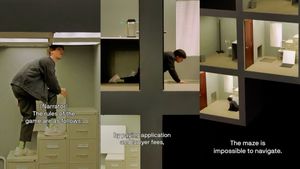

























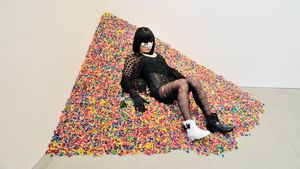

 Author-historian-activist MARTIN DUBERMAN is a distinguished professor of history emeritus at City University of New York who has penned two dozen books and received numerous awards, including an honorary doctor of letters from Columbia University next month. His latest book is the historical nonfiction novel
Author-historian-activist MARTIN DUBERMAN is a distinguished professor of history emeritus at City University of New York who has penned two dozen books and received numerous awards, including an honorary doctor of letters from Columbia University next month. His latest book is the historical nonfiction novel 
